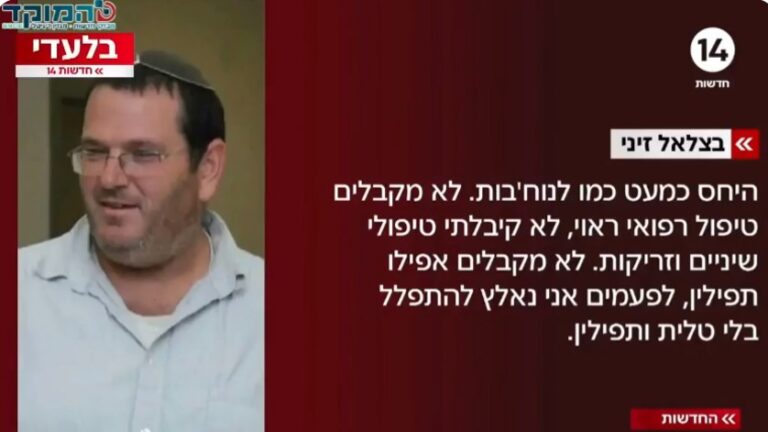 A new kuntres has been recently been released addressing a simcha, chosson and kallah and how one should act. The kuntres was released by HaGaon HaRav Chaim Kanievsky Shlita.
A new kuntres has been recently been released addressing a simcha, chosson and kallah and how one should act. The kuntres was released by HaGaon HaRav Chaim Kanievsky Shlita.
The kuntres has a disclaimer, stating that while the rulings reflect the position of Rav Kanievsky, one should not rely on them “הלכה למעשה” without asking privately regarding each matter. The kuntres includes:
· The father of the chosson speaking with the kallah, with Rav Chaim stated it is permissible if there is a need, and one may say “Gut Shabbos” and “How are you”.
· Regarding the minhag of Sephardim to have a ‘Shabbat Chatan’ after the chasenah, if the case deals with a Sephardi chosson learning in a Ashkenazi yeshiva, the Shabbos should be in line with chasenah and the chosson should not change his minhag.
· A Sephardi chosson learning in a Ashkenazi yeshiva – can there be a Kenyan Tannaim including the breaking of a plate? Rav Kanievsky responds one may do as one wishes.
· Rav Kanievsky adds that prior to the wedding one should make a tanai with one’s kallah not to use electricity on Shabbos and not to use water that arrives via electricity. These are reasons he adds one should live in Bnei Brak, as the matter is already in line with halacha.
· If the kallah is a ‘Yiras Shomayim’ it is not important where she studied. The main point is her willingness to follow the hashkafa of her husband.
· Similarly, one must not be stringent that the kallah’s wife does not work but learns all day or if the kallah’s father has a different hashkafa than the chosson.
· If the parents are not agreeable to the shidduch, or only the mother, this is not a sign the shidduch is not min HaShomayim.
· It is not a problem if the kallah is a few years older than the chosson.
· Monetary commitments made by parents should not come from ‘maiser’ (tithing) money but if the couple is poor, then it may.
(YWN – Israel Desk, Jerusalem)











14 Responses
In the 4th to last paragraph they wrote if the kallahs wife. Just saying…..
Kallahs wife??? Did you mean mother??
You need an editor yeshiva world – not just a moderator!
Very interesting points, most of which are also intuitive and logical. Two items a bit unclear.
First, the Rav is quoted as saying “one must not be stringent that the kallah’s wife does not work but learns all day or if the kallah’s father has a different hashkafa than the chosson….presumably he said that its not important that the “kallah’s husband doesn’t work but is a full-time learner….
Also, why would anyone think its not OK if the kallah is a few years older (and presumably more mature) than the choson, especially when so many chareidi marriages are among such young couples to begin with?
“imilarly, one must not be stringent… if the kallah’s father has a different hashkafa than the chosson”
What? My kid doesn’t have to marry a girl whose father is my twin? I never heard of such a kula.
Didn’t know that a kallah customarily had a wife, or that there was a question of said wife learning or not – but you learn a new thing every day.
Too many mistakes in this article, folks.
6th paragraph of excerpts reads
“Similarly, one must not be stringent that the kallah’s wife does not work…”
Kallahs wife ?!?!
Minimal proper editing please.
Is this a joke? The father of the chosson speaking with the kallah is permissible if there is a need, and one may say “Gut Shabbos” and “How are you”.
“Similarly, one must not be stringent that the kallah’s wife does not work but learns all day or if the kallah’s father has a different hashkafa than the chosson.”
Who is the “kallah’s wife”?
Why the big fuss? We in chutz la’aretz do what we do, & we don’t do like a “small” minority in E Y. Do we also NOT HAVE smart phones, follow other shitos of Rav Chaim? What about other poskim’s p’sak halochos? Why the big deal?????
I think this article could have been written better and with a less misleading headline. It gives the impression that one should be cold shoulder to his daughter-in-law.
Anyone who knows Rav Chaim, shlita, knows that he is very mikatzer with his words. I take it that what was meant is that one should follow what chazal say in Pirkei Avot,
וְאַל תַּרְבֶּה שִׂיחָה עִם הָאִשָּׁה. בְּאִשְׁתּוֹ אָמְרוּ, קַל וָחֹמֶר בְּאֵשֶׁת חֲבֵרוֹ
It seems to me that someone must have asked how one applies this towards his daughter-in-law. When he said, “one may say “Gut Shabbos” and “How are you””, I’m sure he was just giving examples of the appropriate type of talk. In other words, keep your communications respectful and be careful of questions that can be interpreted as being flirtatious. Also, keep it minimal. Acknowledge her. Let her sense you care, but keep things at a respectful distance. Any male commentator here that finds that appalling ask your wife if it would bother her if you shmuzzed with your daughter-in-law or mother-in-law for hours on end. A certain amount is appropriate. After that it becomes inappropriate.
#9 yes many of us do not have smart phones here in chutz la’aretz. the kosher phone market is over 30,00 strong and growing see hamodia article last weeks paper and this is in part to ywn telling us what the godol hador thinks on these matters. the fact that you feel you are in the majority does not make the minority wrong it means the masses are mislead by the secular media
It takes about three seconds to say Gut Shabbos, how are you. I would be extremely offended of that was all my father in law ever had to say to me. My husband is very happy that his father takes an interest in what I work at to enable his son to carry on in full time learning and how I see his einikelach growing up. We don’t shmuz for “hours on end” but my father in law takes a real interest in me and my role in the family. That is not flirtatious, it is normal and natural.
Interesting. We do not follow the Rav, but my husband doesn’t really have a lot of conversation with my daughters in law. He says hello, welcomes them in, asks about the children, offers a drink, asks about the mechutanim etc – very general stuff. He rarely addresses them directly or exclusively, and they see it as completely normal. I’m not sure why there is a fuss being made. As for the typo – is this all you have to worry about?
I would think most of these are common sense but judging by the comments they are obviously not.
1. same hashkafa- no he doesn’t have to be your twin but most guys will look at the family and how the girl is brought up and think Wether it’s a good fit for them…if you are modern orthodox do you easily marry a girl who’s father is hardcore chasidish?…maybe that clears it up for you.
2. talking to daughter in law- no I don’t think reb chaim meant anything else thaneed exactly what he said which is don’t schmooze with your daughter in law it’s not tznius…you can address her but don’t become buddies…..this makes perfect sense there are halachas that man shouldn’t sleep under the same roof as his motherlaw…is that also crazy to you?